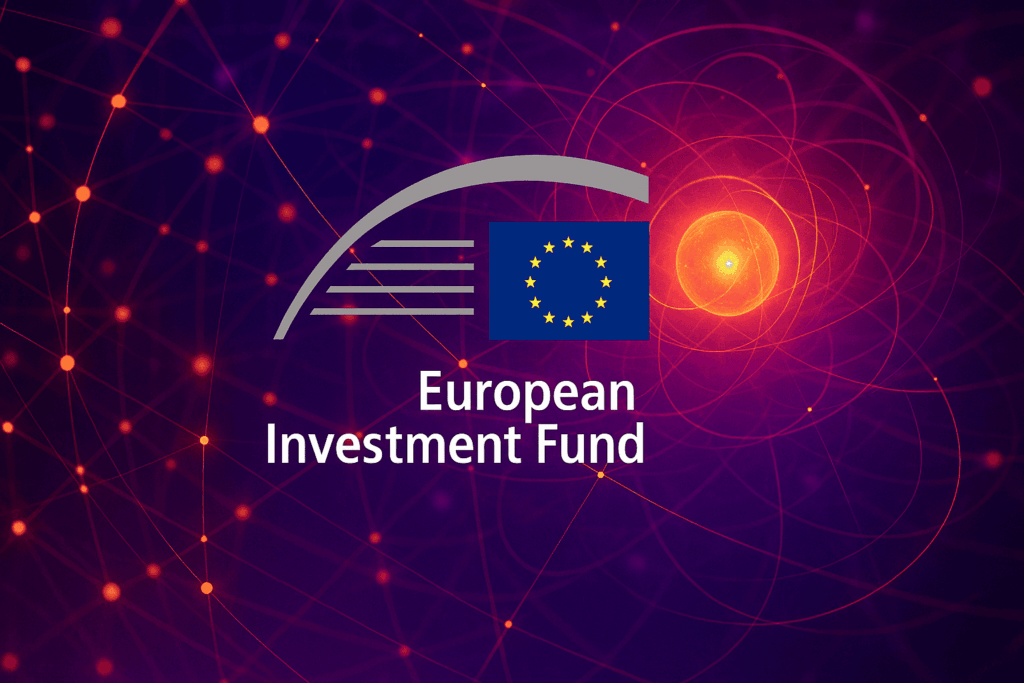Insider Brief
- Recent research suggests AI could outperform quantum computing in simulating certain complex materials and chemical reactions, raising questions about quantum’s potential advantage in these fields, according to MIT Technology Review.
- AI models trained on vast data sets are now able to simulate large, weakly correlated systems, making them a practical and cost-effective tool for industries like drug discovery and materials science.
- However, advances in quantum hardware and algorithm development could still allow quantum computers to reclaim ground, especially for tasks that demand precise simulations of strongly correlated quantum systems.
Progress in artificial intelligence (AI) algorithm development could outpace quantum computing in tackling some of its most promising applications in chemistry and materials science, according to an MIT Technology Review article. This shift in competitive advantage could significantly how companies invest in cutting-edge computing technologies.
Tech giants and new startups have injected billions of dollars into the development of quantum computing, anticipating it would be a natural fit in fields such as finance, drug discovery and logistics. The high expectations have been especially prominent in areas like physics and chemistry, where the unique properties of quantum mechanics hold the potential to solve complex problems beyond the reach of classical computers. But while quantum computing’s potential has been widely touted, its hardware challenges have left room for AI to make unexpected inroads, the review reports.
A recent paper in Science co-written by Giuseppe Carleo, a professor of computational physics at the Swiss Federal Institute of Technology (EPFL), highlights the advances of neural-network-based AI in modeling materials with strong quantum properties.

“The existence of these new contenders in machine learning is a serious hit to the potential applications of quantum computers,” Carleo said in MIT Technology Review. “In my opinion, these companies will find out sooner or later that their investments are not justified.”
Carleo’s skepticism centers on how rapidly AI is advancing in simulating quantum systems, where quantum computers were once expected to hold a decisive advantage.
Quantum Computing’s Promise and Challenges
Quantum computers theoretically excel at handling certain types of calculations much faster than traditional computers. This potential advantage arises because quantum computers use qubits, which can represent complex quantum states in ways that classical bits cannot. In principle, this unique structure enables them to tackle calculations, such as simulating molecular interactions, much faster — maybe exponentially faster — than classical systems.
However, the review points out that reaching this performance level in reality requires thousands or even millions of stable qubits. Current quantum systems have only recently surpassed a thousand qubits, and much larger devices would be necessary to prove an undeniable speed advantage over classical computers. Even for simpler applications, the slow operational speed of quantum hardware, combined with difficulties in managing large data sets, remains a significant hurdle. For evidence the review points to last year’s paper by Matthias Troyer, Microsoft’s head of quantum computing, which noted that for practical purposes, these challenges diminish the expected advantages of quantum computers in areas like database searching and optimization.
MIT Technology Review reports that Troyer’s research has helped shift the focus toward quantum computing’s core strengths — specifically, problems in chemistry and materials science where the effects of quantum mechanics are central. According to the article, this pivot aligns with the original ideas of physicist Richard Feynman, who theorized that quantum computers would excel at simulating quantum systems, like complex molecules, that defy conventional modeling.
AI’s Advantage in Modeling Quantum Systems
While quantum computers continue to develop, AI is advancing quickly, leveraging large data sets to simulate complex systems in physics and chemistry. Traditional methods to study such systems, like density functional theory (DFT), offer a way to simulate weakly correlated quantum systems without exponential scaling. However, running these simulations at scale requires massive computing power. Recently, AI-driven models have started to complement or even outperform DFT in many applications, dramatically expanding the size and complexity of systems researchers can model.
Alexandre Tkatchenko, a physics professor at the University of Luxembourg, described this development to MIT Technology Review, adding: “It’s wonderful. You can really do most of chemistry.”
With neural networks trained on data generated by DFT, AI can now predict molecular properties for up to 100,000 atoms, a scale previously unreachable with classical computing techniques. According to MIT Technology Review, this capability has made AI appealing to sectors such as pharmaceuticals, where understanding protein structures and chemical interactions is crucial.
Olexandr Isayev, a chemistry professor at Carnegie Mellon University, told the review that AI is already a practical tool in these fields, helping to optimize chemical reactions and develop new battery materials. Still, Isayev pointed outthat the biggest obstacle for AI-driven simulations remains access to high-quality data, with major tech companies, like Meta, investing in extensive databases to train these models. Meta’s recent data set, based on DFT calculations for 118 million molecules, enabled its AI model to achieve state-of-the-art performance.
Tackling Strongly Correlated Systems
Although AI has proven adept at weakly correlated systems, it is beginning to show promise in simulating the far more complex strongly correlated quantum systems, which have long posed challenges to classical and quantum computing alike. These systems, where particles interact intensively, are relevant for transformative technologies like high-temperature superconductors and precision sensors. Carleo, along with Microsoft’s Troyer, showed in a 2017 Science paper that neural networks could model these complex quantum systems, even though they don’t rely on conventional data training.
Instead, the AI models operate using rules of quantum mechanics, like Schrödinger’s equation, to find the lowest energy configurations in these systems. The method mimics DeepMind’s AlphaZero, which mastered games like Go and chess by playing against itself. Carleo explained to MIT Technology Review that the approach enables neural networks to compress the complexity of a quantum system’s wave function into a format manageable by classical hardware.
“The wave function is a very complicated mathematical object,” Carleo said, as reported by the review. “What has been shown by several papers now is that [the neural network] is able to capture the complexity of this object in a way that can be handled by a classical machine.”
Since this 2017 advance, AI techniques have achieved notable results in modeling other complex quantum systems, establishing neural networks as a viable method in quantum simulations. According to MIT Technology Review, a recent paper co-authored by Carleo compared neural networks with other classical techniques across several challenging quantum simulation tasks, setting a new benchmark in the field.
Implications for Quantum Computing’s Future
MIT Technology Review’s report suggests that AI’s potential to simulate quantum systems could reduce quantum computing’s appeal for certain applications, posing questions about the long-term commercial viability of quantum technology in chemistry and materials science. According to Carleo, AI-driven models are positioned to become the preferred tools for many quantum simulation tasks.
The convergence of AI with classical computing could, as Frank Noe of Microsoft Research explained, make the number of systems that strictly require quantum computing solutions “much smaller.”
A Collaborative Approach
Despite these advances, MIT Technology Review reports that AI-driven quantum simulations face limitations, particularly in capturing every nuance of strongly correlated systems. While AI can often approximate solutions, it may fall short of complete accuracy.
Yet, as Juan Carrasquilla from ETH Zurich explained, approximations that are “good enough” might suffice for practical purposes, making the solution effectively indistinguishable from an exact answer in real-world applications.
This capacity for approximation opens doors to more collaborative methods, combining AI with other classical simulation techniques. According to Antoine Georges from the Flatiron Institute’s Center for Computational Quantum Physics, each method has its strengths and is complementary to others.
Georges told MIT Technology Review, “So I don’t think these machine-learning methods are just going to completely put all the other methods out of business.”
Another weakness in the argument for an AI-only approach to quantum simulations is it pre-supposes little advance in quantum hardware and seemingly no advance in quantum algorithm development. Because robust quantum computers do not exist yet, it is difficult to estimate how a fault-tolerant machine would handle quantum simulation tasks — whether it underperforms or outperforms AI in those tasks. It is a little like fighting a ghost — you can throw a lot of punches, but there’s no way to tell whether they are landing.
Secondly, while the progress in classical AI algorithm development has been impressive, there is no reason to suggest that progress in quantum algorithm development would be stunted. Further, there would be no reason to suggest that the same progress in classical AI wouldn’t translate into advantages for quantum AI, or a hybrid classical-quantum AI, both of which are being investigated.
Finally, an understanding of the costs of these AI simulations would make for a better, more final comparison. For example, advanced AI is often computationally expensive and energy draining. Fault-tolerant quantum computers may offer a scalable upside in competitive advantages as far as monetary and environmental costs.
In the near term, many experts believe that hybrid systems — combining quantum and classical computing — might strike the best balance for energy efficiency. AI might handle the parts of a problem that don’t need quantum processing power, while quantum processors tackle the highly complex, quantum-specific aspects. This kind of task-sharing could make certain applications significantly more efficient, combining the strengths of both technologies without demanding the full energy footprint of either on its own.
So, while AI continues to advance, the quantum computing industry is expected to maintain its focus on complex, quantum-specific challenges that classical systems can’t handle, especially as these applications mature. MIT Technology Review concludes that the competition between AI and quantum computing may ultimately drive advances in both fields, providing practical solutions for chemistry and materials science far sooner than anticipated.

















